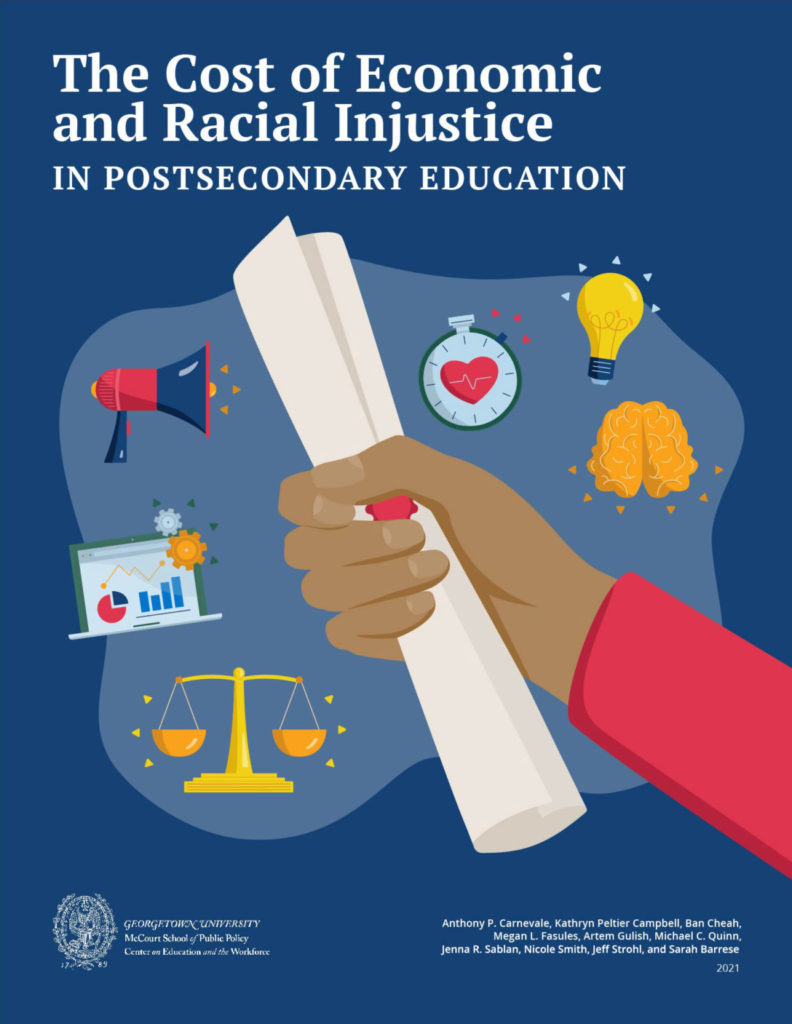 A new report from the Center on Education and the Workforce at Georgetown University examines the costs to the U.S. economy due to racial inequity in higher education.
A new report from the Center on Education and the Workforce at Georgetown University examines the costs to the U.S. economy due to racial inequity in higher education.
The study conducted a simulation that found that the U.S. economy misses out on $956 billion dollars per year, along with numerous nonmonetary benefits, as a result of postsecondary attainment gaps by economic status and race/ethnicity. The study estimates that closing these gaps would require an initial public investment of at least $3.97 trillion, but the benefits would outweigh the costs over time. Equalizing educational attainment without increasing student debt for low-income adults could also boost the gross domestic product by a total of $764 billion annually.
The report’s authors estimate that if Blacks and other underrepresented groups were educated at the same level as White adults, the following benefits would occur:
- Higher earnings due to increased educational attainment among workers could yield a $308 billion annual increase in tax revenue.
- Spending increases on goods and services could result in an annual GDP boost of $542 billion.
- Higher attainment levels could result in $33.7 billion in annual savings from a reduced need for federal public assistance programs.
- Since people with more education are less likely to be incarcerated, increased educational attainment could yield a $13.8 billion annual reduction in public criminal justice expenditures by reducing the number of incarcerated people.
- Public health spending is lower for people with higher levels of educational attainment, potentially resulting in savings of $58.7 billion annually.
The full report, The Cost of Economic and Racial Injustice in Postsecondary Education, may be downloaded by clicking here.













The findings of this study reflect its major assumptions. Unfortunately, the assumptions are not realistic.
GIGO.
Hey ‘ewart’ (lower case ‘e’intentional),
You’re the epitome of “Self-hatred In Self-hatred Out”(SISO). You’re a private industry buffoon.
Yes Indeed a buffoon.